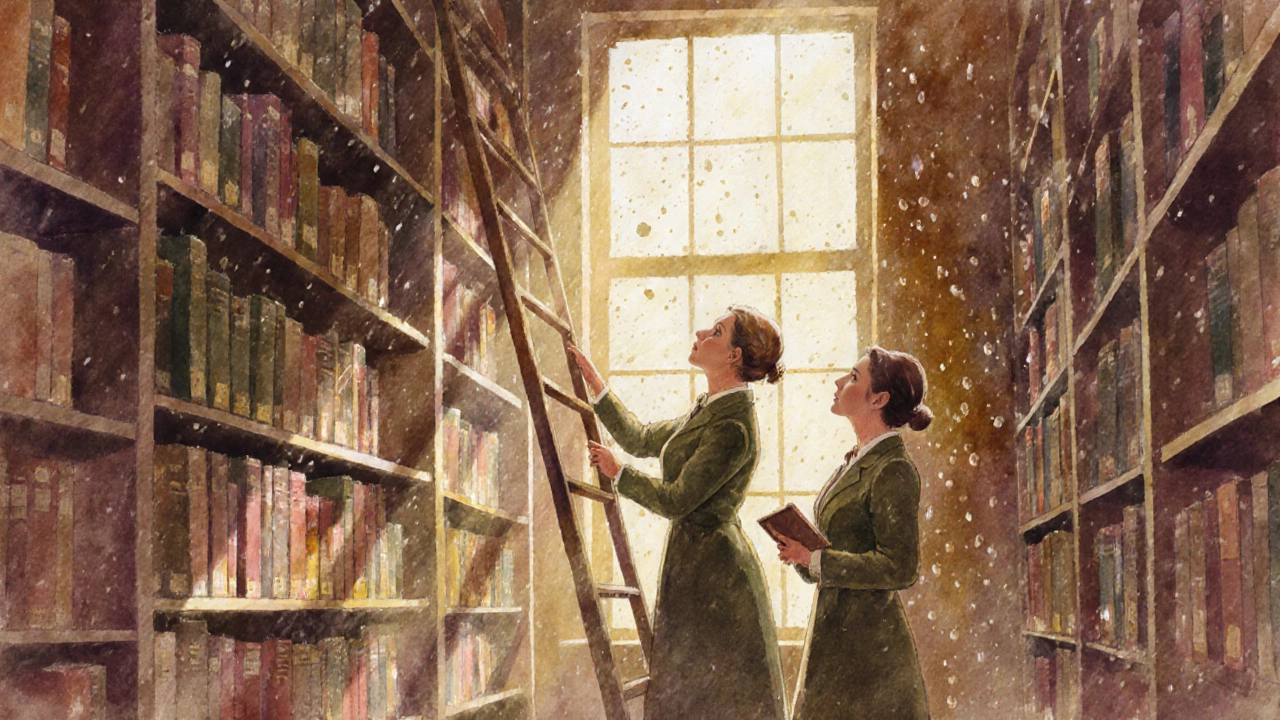Forget the damsel in distress and the brooding billionaire who only has eyes for you. Romance novels in 2025 are shaking off the old clichés and diving into stories that feel real, messy, and deeply human. If you’re picking up a romance novel this year, you’re not just looking for a happy ending-you’re looking for a mirror. And right now, the genre is reflecting a world where love isn’t about perfection, but about presence.
Real people, real problems
The biggest shift? Characters are finally allowed to be flawed without being punished for it. Gone are the days when a heroine had to lose 20 pounds or change her entire personality to win love. Today’s protagonists are moms juggling careers and bedtime routines, men navigating therapy after divorce, people with chronic illness, and those who just plain don’t like small talk. In Love in the Time of Commute by Lila Chen, the lead character is a single mother who meets her love interest on the 7:15 a.m. train. Their relationship grows over shared silence, spilled coffee, and one honest conversation about anxiety. No grand gestures. No over-the-top proposals. Just two people showing up, day after day, even when it’s hard.
Slow burn is the new fast hook
Readers are tired of insta-love. The most talked-about books this year are the ones that take their time. Relationships unfold over months, not chapters. In The Library of Second Chances, the hero and heroine work together at a small-town library for eight months before they share a first kiss. The tension builds through shared book recommendations, quiet lunches, and a mutual love of rainy afternoons. Publishers are noticing: sales of slow-burn romances jumped 67% in the first half of 2025, according to BookScan data. Readers aren’t just reading for the payoff-they’re savoring the journey.
Queer love, everywhere
Queer romance isn’t a subgenre anymore-it’s the main genre. Books featuring LGBTQ+ leads are no longer labeled as "gay romance" or "lesbian fiction." They’re just romance. In 2025, half of the top 10 romance bestsellers feature queer protagonists. One standout is When the Stars Align, a dual POV story about two nonbinary astronomers falling for each other while working on a remote telescope station. Their love story doesn’t center on coming out-it centers on shared wonder, quiet support, and the fear of losing someone you finally understand. The book hit #1 on Amazon not because it was "diverse," but because it was deeply felt.

Enemies to lovers, but make it ethical
The enemies-to-lovers trope is still huge-but now, there’s a new rule: no toxic behavior gets rewarded. In past books, characters might have lied, manipulated, or stalked their way into love. Not anymore. Modern readers want conflict that comes from clashing values, not control. In Opposite Sides of the Law, a public defender and a prosecutor start off as bitter rivals. Their romance grows from debates over justice, not from one sabotaging the other’s case. The turning point? They both admit they’ve been wrong-and then choose to listen. That kind of emotional honesty is what readers are craving.
Love after loss
Grief is no longer a backstory-it’s the setting. More romances are exploring love after death, divorce, or long-term emotional distance. In The Weight of Quiet, a widower in his 50s slowly opens up to a neighbor who’s also grieving. Their relationship isn’t about replacing the past-it’s about building something new alongside it. The book doesn’t rush healing. It shows how love can grow in the cracks of sorrow. Sales data shows this subgenre grew 42% year-over-year. People aren’t just reading to escape-they’re reading to feel less alone.
Setting matters more than ever
Location isn’t just backdrop anymore-it’s a character. Books set in small coastal towns, rural Appalachia, or even a single apartment building in Tokyo are pulling readers in. Beach House Days takes place entirely in a rented summer house on the Oregon coast. The romance blooms between two strangers who end up sharing the space for three months. The ocean, the fog, the creaky stairs-they all shape the relationship. Readers say they can smell the salt air. That kind of immersion is rare, and it’s working.

What’s fading out
Some tropes are quietly disappearing. The "rich man saves the poor girl" plot? Almost gone. The "magic cure for trauma"? Readers are calling it out. The hero who never talks about his feelings until the final chapter? Too predictable. The genre is evolving because readers are demanding more-more respect, more depth, more truth.
What to read next
- Love in the Time of Commute by Lila Chen - For readers who want quiet, everyday love.
- When the Stars Align by J. R. Vega - A beautiful queer romance about connection beyond gender.
- The Library of Second Chances by Mira Thompson - Slow burn perfection with books as the bridge.
- The Weight of Quiet by Elena Ruiz - Grief, healing, and love that doesn’t rush.
- Beach House Days by Samira Patel - Atmospheric, intimate, and full of texture.
Why this matters
Romance novels have always been about hope. But today, that hope looks different. It’s not about finding someone who fixes you. It’s about finding someone who walks beside you while you’re fixing yourself. The most powerful romances now don’t promise perfection. They promise presence. And in a world that feels increasingly disconnected, that’s the kind of love readers are desperate to believe in.
What’s the most popular romance trope in 2025?
The most popular trope isn’t a single formula anymore-it’s authenticity. Readers love slow-burn relationships, realistic conflict, and characters who grow together. Enemies-to-lovers is still strong, but only when both characters respect each other’s boundaries. Queer love stories and romances set after loss are also dominating bestseller lists because they feel true.
Are traditional romance tropes dead?
Not dead, but transformed. The billionaire trope still exists, but now the billionaire might be struggling with burnout or parenting. The small-town setting is still popular, but the heroine might be a single dad, not a shy librarian. Readers want familiar structures-but with deeper, more diverse characters. The old tropes are being rewritten, not retired.
Why are slow-burn romances trending?
Because real relationships take time. Readers are tired of instant chemistry that feels unrealistic. Slow-burn romances let characters build trust, share quiet moments, and grow emotionally before physical intimacy. It’s not about waiting for the kiss-it’s about earning it. This style creates deeper emotional investment, and readers are responding with higher ratings and repeat purchases.
Is the romance genre becoming too serious?
Not at all. There’s still plenty of humor, heat, and lightheartedness. But readers now expect emotional honesty alongside the fun. A book can be funny and still tackle grief. It can be steamy and still show therapy sessions. The genre isn’t losing its joy-it’s adding layers. Readers want to laugh, cry, and feel seen-all in the same story.
Where can I find new romance books that match these trends?
Check out BookBub’s "New Romance" newsletter, which highlights rising titles with diverse leads and realistic plots. Indie authors are leading the charge-look for books from publishers like Carina Press, Montlake, and The Wild Rose Press. BookTok and BookTube are also great places to discover hidden gems. Don’t just search "romance"-try "slow burn romance," "romance after loss," or "queer romance 2025."

